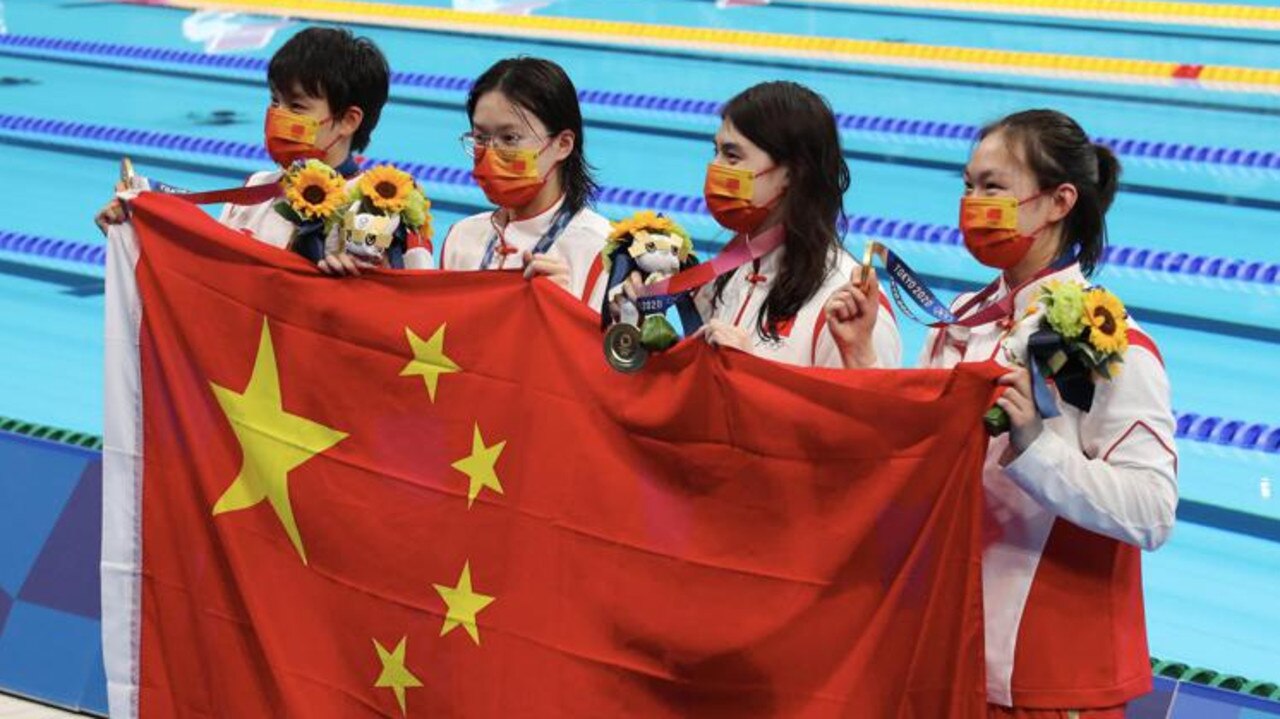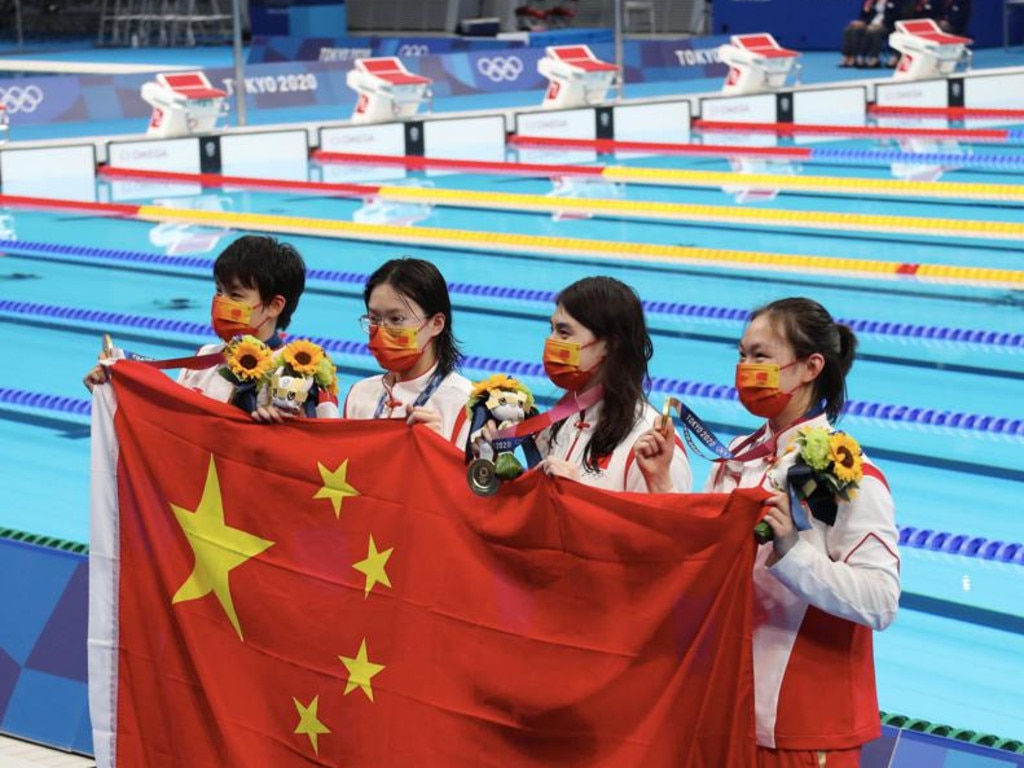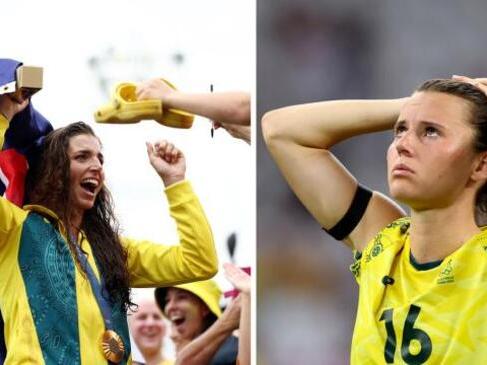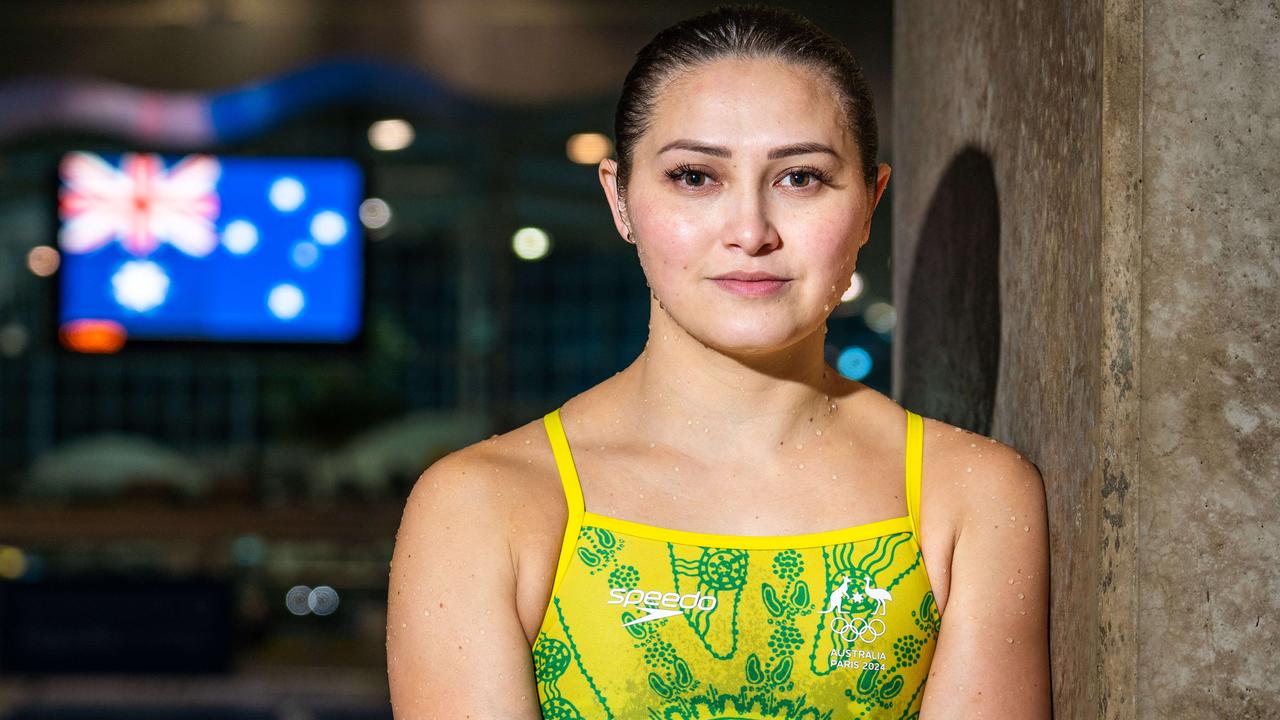China’s wild claim after steroids detected in positive 2022 doping test
China has told the World Anti-Doping Agency exactly where it believes two swimmers who tested positive had picked up the banned substance.

Chinese officials tested Australian beef as they tried to establish the source of how two other the country’s swimmers tested positive to a banned substance.
The claims, revealed by News Corp, came as new details of the Chinese doping scandal came to light almost two years after the positive tests.
China told the World Anti-Doping Agency it believed two swimmers, Tang Muhan and He Junyi, ate contaminated burgers at a Beijing fast food restaurant in October 2022.
Both returned positive samples for “trace amounts” of metandienone – a banned steroid known for use in meat production.
Australia’s meat industry has hit back at suggestions its products could be to blame, with Meat and Livestock Australia saying metandienone “is not used in any capacity in Australian beef production or in any veterinary medicine.”
The doubt surrounding China’s athletes has long created tension within swimming ranks, with rivals from the US and Australia often speaking out on the issue.
WADA has been criticised for the secrecy surrounding the positive tests, which were not made public until the New York Times broke the story on Tuesday.
Speaking after news broke, US swim queen Katie Ledecky said: ”I read the report this morning. I think I’ve made my thoughts pretty clear. It’s disappointing.”

Both Tang – who is part of China’s women’s relay team for Paris – and He were banned for 12 months.
In a statement, WADA said CHINADA – China’s anti-doping body – had concluded meat contamination was behind the positive cases, after an investigation.
“The investigation by CHINADA included the testing of hundreds of meat samples from various sources, with dozens revealing positive results for metandienone,” it said.
“CHINADA also analysed the athletes’ nutritional supplements and conducted hair tests, which were negative.
“Significantly, both the swimmers provided negative doping control samples in the days before and after the single trace positive.”
WADA said the positive samples were in the range of “a trillionth of a gram”.
It also revealed one Chinese shooter and one BMX rider also tested positive to similar amounts of the same substance and were provisionally suspended before the CHINADA probe.
WADA said it was undertaking an investigation into the scale and risk of meat contamination with metandienone, which began in early 2024.
“Based on the number of cases, clearly there is an issue of contamination in several countries around the world.”
China’s anti-doping body has accused the Times of trying to “disrupt the order of the Paris Olympic swimming competition, affect the psychology of Chinese athletes and weaken their competitive ability”.
“This is extremely unfair and immoral,” it said.

USADA chief executive Travis Tygart slammed WADA’s conduct, saying the secrecy surrounding Tang’s suspension had “tarnished” the upcoming relay event.
“China seemingly has the playbook to compete under a different set of rules tilting the field in their favour,” he said.
“The failed leadership of the anti-doping system has allowed one country special treatment at the very time we should all be united behind the Olympic values of fair play and respect for all fellow competitors.”
WADA hit back to say the issued had been politicised by the US media “to imply wrongdoing on the part of WADA and the broader anti-doping community”.
“As we have seen over recent months, WADA has been unfairly caught in the middle of geopolitical tensions between superpowers but has no mandate to participate in that.”
It was separately revealed earlier this year that 23 Chinese athletes who competed at the 2021 Tokyo Games had tested positive to heart medication trimetazidine.




